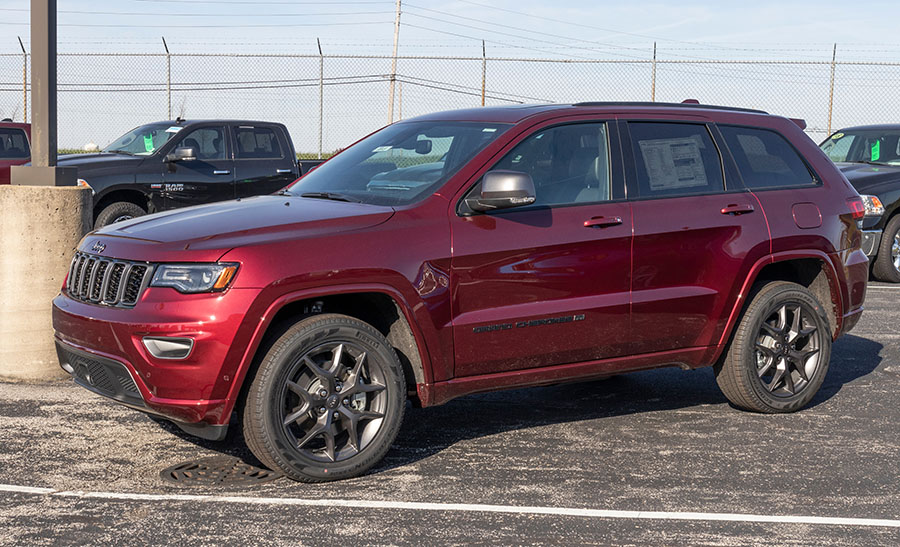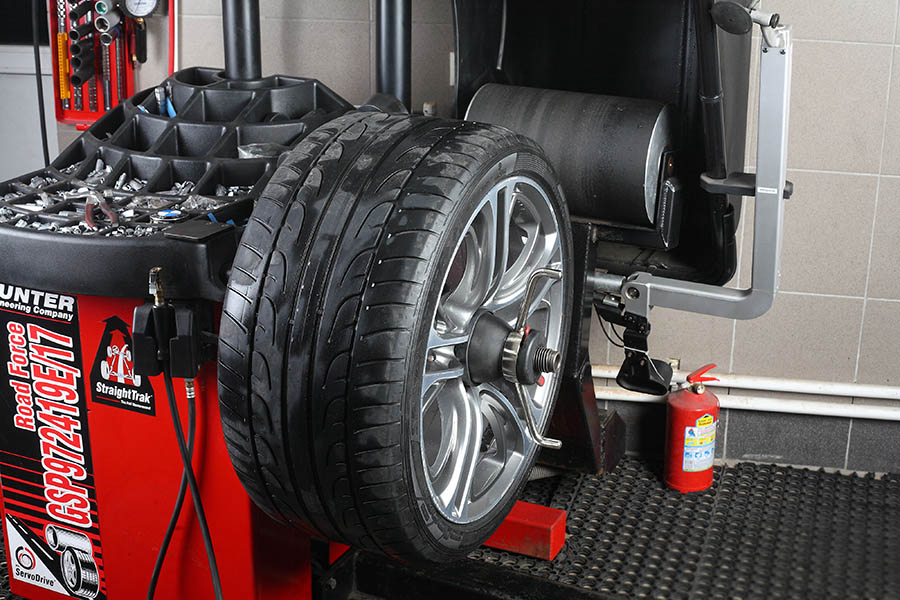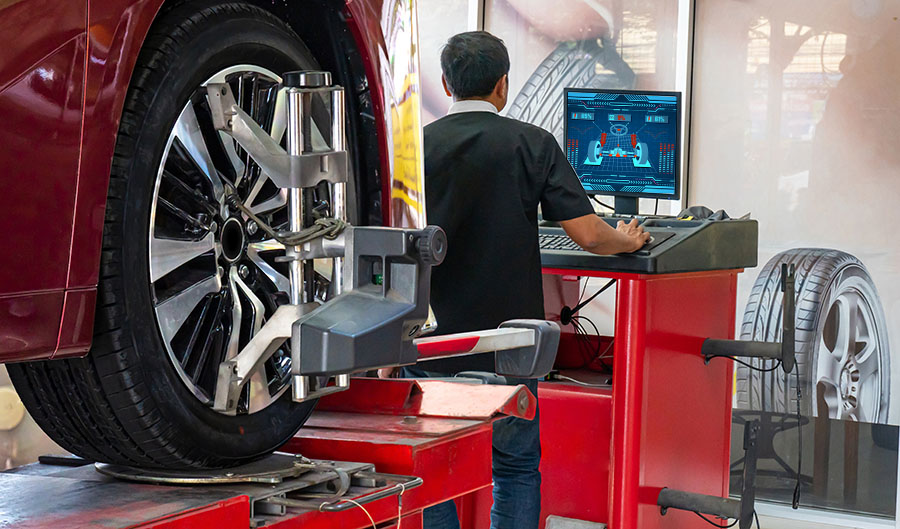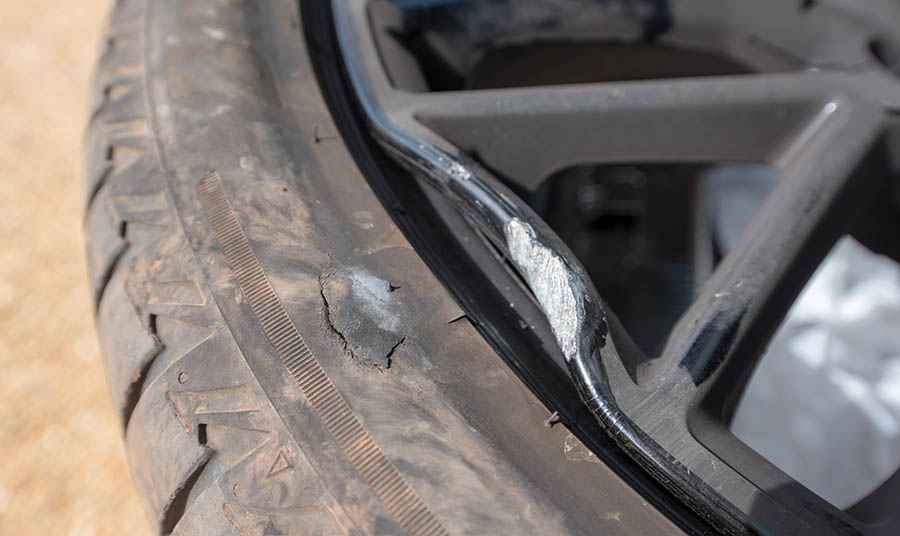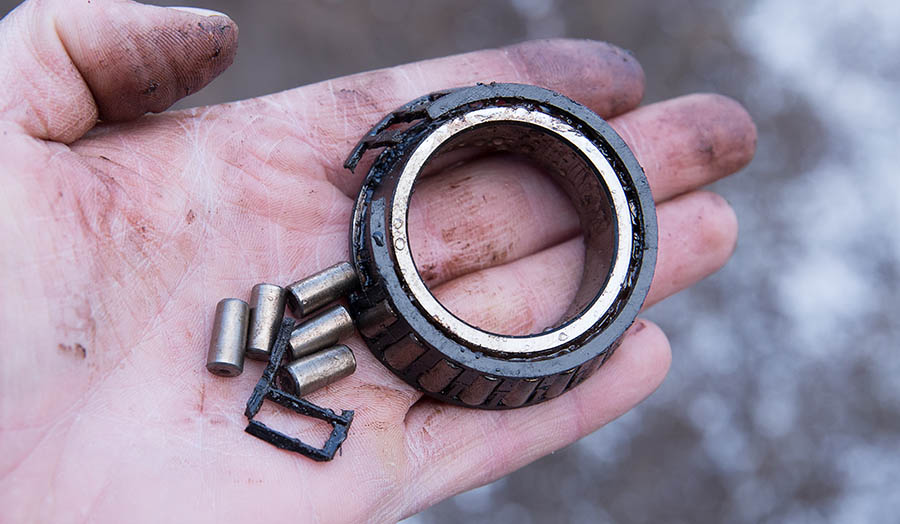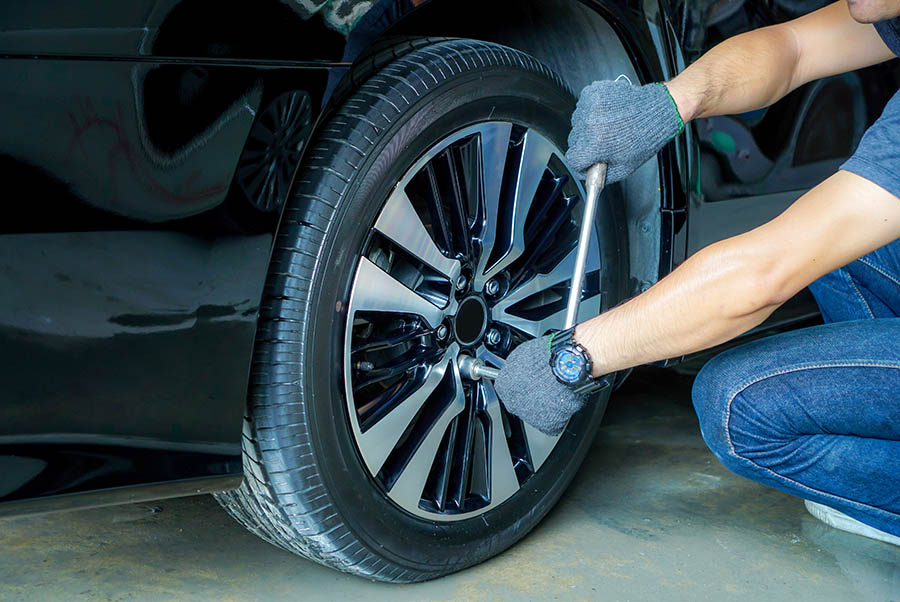- Jeep Grand Cherokee shakes at highway speeds – causes and how to fix it
- 1. Unbalanced wheels
- What causes Jeep Grand Cherokee wheels to go out of balance?
- Do brand new tires need to be balanced?
- How are Grand Cherokee wheels balanced?
- How often should Jeep Grand Cherokee tires be balanced?
- 2. Bad wheel alignment
- What are the symptoms of bad wheel alignment in Jeep Grand Cherokee?
- How is wheel alignment performed on Jeep Grand Cherokee?
- How often should wheel alignment be performed on Jeep Grand Cherokee?
- 3. Tire damage
- 4. Rim damage
- 5. Bad wheel bearing
- What causes bearings to fail in Jeep Grand Cherokee?
- Recommended video:
- 7. Bad axle
- 8. Worn suspension or steering parts
- 9. Low tire pressure
- 10. Over-inflated tires
- Conclusion
Jeep Grand Cherokee shakes at highway speeds – causes and how to fix it
Driving your Jeep Grand Cherokee at highway or freeway speeds with cabin vibration or wobbling steering wheel is not only irritating, it can also be dangerous. Such vibrations are symptoms of an underlying problem with your Grand Cherokee, which must be resolved urgently for road safety and driving comfort.
The most common causes for Jeep Grand Cherokee shaking at high speeds are unbalanced wheels, misaligned wheels, tire damage, bent rim, bad wheel bearing and loose lug nuts. Less common causes are bad axle, worn suspension or steering parts or incorrect tire pressure.
1. Unbalanced wheels
The leading cause of vibration in Jeep Grand Cherokee when driving at high speed is unbalanced wheels, especially when steering wheel wobbles or vibrates. If only front wheels are out of balance, the vibration is typically strongest at the steering wheel. If rear wheels are out of balance, the vibration can be felt throughout the vehicle’s body.
What causes Jeep Grand Cherokee wheels to go out of balance?
An imbalance in the wheels of your Grand Cherokee is usually caused by uneven wear of the tires, or from contact with potholes or obstacles. This shifts the center of gravity of the rim and tire unevenly around the axis. In combination with the centrifugal force that occurs at high speeds, the wheel begins to vibrate and the steering wheel begins to wobble. This not only increases the wear and tear on the wheels, but also the wear and tear on other components of your vehicle.
Do brand new tires need to be balanced?
New tires can have imperfections from the manufacturer. If you have new tires fitted to the rims of your Jeep Grand Cherokee, it is standard procedure that you also have the tires correctly balanced to avoid vibrations and premature wear caused by the imbalance of the rotating wheels.
How are Grand Cherokee wheels balanced?
Jeep Grand Cherokee wheels can be balanced on a specialty piece of equipment called a wheel balancer, which is available at most car workshops. The wheels are clamped in the machine and then rotated. During the rotation, various sensors determine whether the wheels are running smoothly or unevenly. If an imbalance is detected, it is corrected by attaching small weights to the rim. These compensate for the unevenly distributed weight of the tire and ensure that the wheel runs smoothly.
How often should Jeep Grand Cherokee tires be balanced?
There are no fixed intervals for balancing tires on your Grand Cherokee, but it is recommended to balance the wheels with tire rotation every six months or 5,000 to 7,000 miles. Regular balancing not only reduces tire wear and prevents expensive consequential damage to the vehicle, but also increases driving comfort and your safety.
2. Bad wheel alignment
Misaligned wheels can also cause vibration issues in your Jeep Grand Cherokee. Wheel alignment is an important and often overlooked aspect of maintenance. Potholes and curbs can easily misalign your wheels, resulting in poor control and excessive wear on your tires.
What are the symptoms of bad wheel alignment in Jeep Grand Cherokee?
The most obvious sign of misaligned wheels in Grand Cherokee is when your vehicle pulls to one side and you constantly have to adjust the steering wheel to drive in a straight line. Some other signs include uneven or rapid tire wear, crooked steering wheel when driving straight and squealing tires.
How is wheel alignment performed on Jeep Grand Cherokee?
Wheel alignment is primarily carried out using electrical diagnostic tools. Using sensors that are attached to the wheels of Grand Cherokee, a computer system recognizes the extent to which the actual values deviate from the target values. The target values are the standardized values specified by the manufacturer. The measured values can be compared on a computer and deviations are interpreted and corrected directly.
How often should wheel alignment be performed on Jeep Grand Cherokee?
In contrast to wearing parts, there are no fixed maintenance intervals or manufacturer specifications for wheel alignment. Therefore, such a review is usually at your own discretion. Nevertheless, it is advisable to check the treads at least as part of the tire rotation every six months or 5,000 to 7,000 miles. Do note that driving habits can heavily influence how often you need to get your Grand Cherokee wheels aligned.
3. Tire damage
Tire damage is one of the common causes for a wobbling steering wheel or vehicle body vibrations. Visually inspect all the tires on your Jeep Grand Cherokee for any cuts, cracks, bulges and uneven wear. But sometimes the damage to the tire is not easily visible, for example when the belt breaks inside the tire, which can even happen to brand new tires.
4. Rim damage
A bent rim can also cause vibrations on your Jeep Grand Cherokee. Such damage usually occurs when obstacles such as curbs, speed bumps or deep potholes are driven over too quickly. This leads to vibration especially when driving at high speeds. Balancing the wheels would probably not fix the problem, a bent rim must be replaced.
Even if there is no visible damage, the whole rim could be deformed resulting in uneven diameter. An experienced mechanic can tell if the rim is bent by mounting it on the wheel balancing machine.
5. Bad wheel bearing
A defective wheel bearing can be the cause of shaking Jeep Grand Cherokee. The most common signs of bad wheel bearing are grinding noise in the cabin when driving straight, a knocking noise when cornering, and the vehicle vibrates. The faster you drive, the louder the grinding noise and stronger the vibration.
What causes bearings to fail in Jeep Grand Cherokee?
Even when driving your Grand Cherokee in a straight line, the bearings have to absorb high radial forces. The entire weight of the vehicle rests on the bearings. When driving, the speed creates additional forces. If a curve is then also driven through, axial forces occur. High impacts on the bearings also occur on uneven roads or when driving through potholes. Impacts of all kinds are much more damaging to bearings than the high loads. Therefore, all wheel bearings eventually fail. However, how soon they fail depends on driving habits.
Recommended video:
Important for every tire change: The wheel hub and the area on the back of the rim around the center hole should be cleaned, preferably with a wire brush, in order to remove all dirt safely.
7. Bad axle
A worn out or faulty axle component can also result in unwanted vibrations in your Jeep Grand Cherokee. An axle is a rod or shaft that rotates the wheels and supports the vehicle’s weight. They are responsible for transmitting power of the engine to the wheels.
8. Worn suspension or steering parts
Looseness in suspension or steering system components can cause vibrations in your Grand Cherokee. Overly worn ball joints or tie rod ends makes it difficult to properly align your vehicle. Some common signs include vibrations from the front end or through the steering wheel, clunking or rattling noise coming from your front suspension especially when going over speed bumps or when turning the vehicle. In extreme cases, your front end can not only vibrate but also shake violently at high speeds, this phenomenon has been nicknamed “death wobble”.
9. Low tire pressure
Low tire pressure can also make your Jeep Grand Cherokee vibrate at high speeds. Make sure air pressure in all four tires is according to the recommended pressure by the manufacturer. The recommended air pressure is listed on the driver’s door jam or in the owners manual.
10. Over-inflated tires
If the tire pressure is too high, the tire only touches the road with the center of the tread. As a consequence, it wears itself down more and it wears out unevenly. In addition, excessively high tire pressure has negative consequences: Longer braking distance due to the small contact area and sidewall stiffness and tread rigidity may trigger vibrations.
Conclusion
There are many reasons why your Jeep Grand Cherokee is shaking at high speeds. When looking for the reason, you should always start with the most obvious cause, unbalanced or misaligned wheels.
In any case, it is advisable for laypersons to visit a workshop. A professional mechanic can swiftly diagnose the vibration problem for you.
